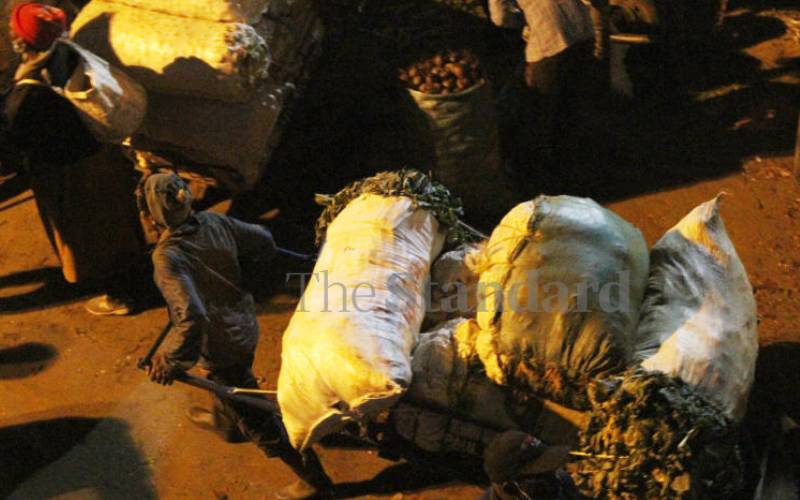×
The Standard e-Paper
Fearless, Trusted News

Trader pulling a handcart at Marikiti market, Nairobi. October 9, 2020. [Elvis Ogina, Standard]
It seems theatrical when we see waves of politics in the post-colonial Kenya oscillating in cyclical progression, episodes well-choreographed in a repetitive manner. As remarked in Achile Mbembe’s post-colony theory, the founding political elites of this country disregarded the independence constitution, set the pace and fronted own or personal goals.